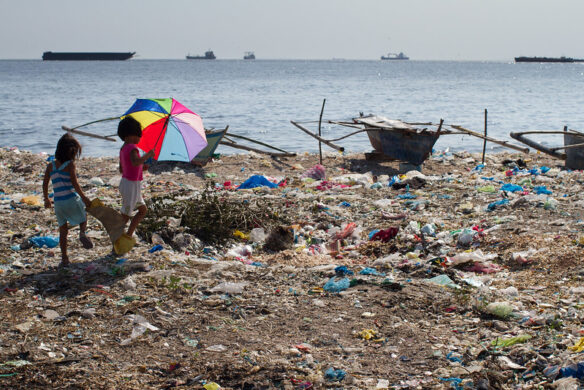
Photo source: ©© Telmo
By Greenpeace
Greenpeace, yesterday, called on the Japan’s incoming Prime Minister to delay the September 1st opening of schools in Fukushima City, after a Greenpeace radiation monitoring team found dose rates exceeding international safety standards. The international environmental organisation also described the government’s announcement of new “basic decontamination plan” for the greater Fukushima area as deplorably late and inadequate.
On August 17, 18 and 19, a Greenpeace radiation monitoring team surveyed a high school, preschool, and childcare centre, as well as several public areas in Fukushima City. The team found dose rates of up to 1.5 µSv/h 1m from the ground at one school despite having been decontaminated by the authorities, and up to 2 µSv/h at 1m at a park in the city centre, showing that official clean-up efforts are not sufficient to protect children’s health.
“No parent should have to choose between radiation exposure and education for their child”, said Kazue Suzuki, Greenpeace Japan nuclear campaigner. “The long overdue clean up plan will deliver too little too late – Japan’s new Prime Minister must delay the start of school, immediately relocate those in high-risk areas, and mobilise the thousands of workers that are needed to get radiation dose rates as far below 1mSv/y as possible”.
The Greenpeace team found that while average dose rates remain above the international maximum allowed dose of 1 mSv/y in many places already decontaminated by the authorities, decreased levels of radiation were recorded in locations where local communities had carried out further clean up activities.
“We found a notable decrease in radiation at one Kindergarten in Fukushima City, but this was thanks to decontamination efforts by community groups and NGOs,” said Jan Vande Putte, Greenpeace International radiation expert. “This shows that it is possible to reduce levels of radiation exposure to children, but immediate action must be taken to remove them from harm.”
“In addition taking real action to protect the health and welfare of people affected by the Fukushima Disaster, Japan’s new leader must show full commitment to the renewable energy future Prime Minister Naoto Kan fought for, and work towards the immediate phase out of nuclear power in Japan,” concluded Suzuki. “The people of Japan will not accept anything less.”









